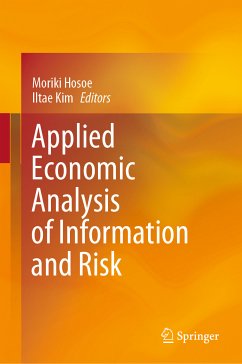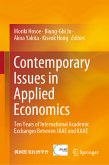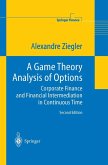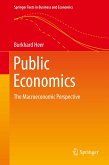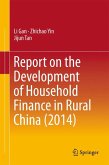The book consists of two parts. In Part I, several aspects of applied economics are investigated, including public policy, labor economics, and political economics, from the standpoint of the economics of (asymmetric) information. First, several basic frameworks of the incentive mechanism with regard to transaction-specific investment are assessed, then various tools for market design and organization design are explored.
In Part II, mathematical measures of risk and risk aversion are examined in more detail, and readers are introduced to stochastic selection rules governing choice behavior under uncertainty. Several types of change in the random variable for the cumulative distribution function (CDF) and probability distribution function (PDF) are discussed. In closing, the part investigates the comparative static results of these changes in CDF or PDF on the general decision model, incorporating uncertain situations in applied economics.
Dieser Download kann aus rechtlichen Gründen nur mit Rechnungsadresse in A, B, BG, CY, CZ, D, DK, EW, E, FIN, F, GR, HR, H, IRL, I, LT, L, LR, M, NL, PL, P, R, S, SLO, SK ausgeliefert werden.

